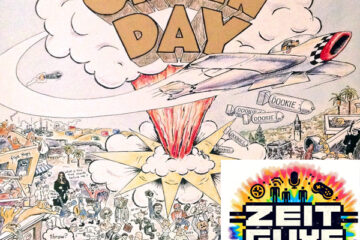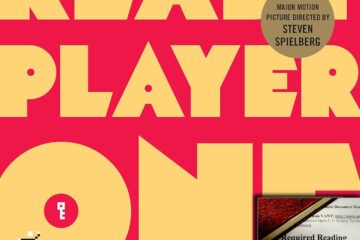Students are also referencing this article: That Diss Song Known as Yankee Doodle by David Segal
Yankee Doodle by Lulu Congrave
Americans are known for having an excellent work ethic and turning hardships into something positive. An example of this is the song “Yankee Doodle.” The folk song was sang by British troops during the Revolutionary War. The lyrics were supposed to embarrass the American soldiers by calling them gay, childish boys, and idiots. The soldiers were able to reappreciate this song and several of the terms in the song. For example, the British troops sang that the main character of the song, Yankee Doodle, would put a feather in his soldier’s hat and consider himself a macaroni. Macaroni was a term used to describe the British subculture compiled of people who would over dress and were considered flamboyant and foolish. Another way the British tried to get underneath the American soldiers’ skin was by calling them gay. This was considered an insult and it was used to belittle their manliness. The British also sang about how Yankee Doodle, or the Americans, would ride ponies and not horses. This insinuated that the American soldiers were frivolous little boys who were not manly enough to ride stallions into battle.
As the Revolutionary War continued, the colonies started advancing on the British troops and it seemed as if they were going to win the war. Then the American soldiers wanted to embarrass the British troops and rub salt in the wound by singing the song back to them. They continued to do this and ended up making the song something that Americans were proud of. British soldiers would hear American troops belting this taunting song when they were losing a battle and accepting defeat. Americans still to this day continue to sing “Yankee Doodle” as a sign of pride. It is a classic, fun song Americans sing on the Fourth of July to display their patriotism. “Yankee Doodle” is one of the first examples of the American people showing their grit by taking something that was meant to be a hardship and turning it into something inspiring.
Yankee Doodle by Lauren Polli
The song “Yankee Doodle” is seemingly one of the most patriotic songs in America. The first verse “Yankee Doodle went to town//A riding on a pony//Stuck a feather in his cap//And called it macaroni” is known by almost all American citizens. Sung throughout the nation as a song of patriotism and country pride. The song dates back to the Revolutionary War, when the lyrics were written by British soldiers. Yes, British soldiers, not American soldiers. The song was originally written to mock and make fun of the poorly organized and supposedly weak American army. The Redcoats are calling the Americans gay.
To better understand the message of this song, it’s best to start with the first verse. The line, “A-Riding on a pony,” is meant to show that the British saw the American’s as childish, as if they cannot even ride a horse, they have to ride ponies. Also in this stanza is the line, “And called it macaroni.” This allusion is not to the pasta macaroni, but to a group of British fops that called themselves Macaroni. A fop is a man who is greatly concerned with his appearance and wardrobe, in what can be an excessive way. The Macaronis were made fun of with cruel nicknames, and the British are comparing the Americans to them.
The title of this song is even a vicious insult. “Yankee” was a crude word for a colonist, and “doodle” is another word for a fool. And they’re saying that the doodle is heading to town to become part of a frivolous group that call themselves Macaroni. But the doodle cannot pull it off. He does not realize that calling a feather macaroni will get him into Britain’s elite group. The real meaning of the song is this: the doodle is a homosexual so foolish that he is unable to express his homosexuality properly.
The song became popular with the British, but eventually the Americans reappropriated it. The song was turned into a patriotic song for the colonists. They would sing it back at the British when they won battles, because the British did not think they were capable.
“Yankee Doodle Dandy” Analysis by Nicholas Woodward
“Yankee Doodle Dandy” is known by most all Americans as a patriotic tune. The song was published in the 1780s though it was written earlier in the 1750s. It was sung by British military officials and soldiers to poke fun at and mock the Yankees in the American Colonies. “Yankee Doodle Dandy” is a derogatory song written by the British that was claimed and reappropriated by the Americans following the Revolutionary war to mock the British for their loss.
The British wrote “Yankee Doodle Dandy” to mock the colonists in America. In the title, the words “Doodle” and “Dandy” respectively mean a fool and a jerk. Then, in the first stanza, the Yankee Doodle “Stuck a feather in his cap / And called it macaroni.” This referred to what the British thought of the American colonists as having no class. A macaroni is a person who is wealthy and dresses nicely, so the writer is saying that the Yankee thinks he can be a macaroni and dress nicely just by sticking a feather in his hat. The term doodle also meant gay, so the British were calling the American soldiers gay, which, in 1700s terms, meant they were too feminine to be soldiers. The Americans were being labeled as too weak for war. The Yankee in the song also rides a pony and not a horse, which makes him seem lesser and weaker. “Yankee Doodle Dandy” was a war song written to make fun of the disorganized Americans.
The Americans took the song and reappropriated it as their own. Once the Americans and the Continental Army started defeating the British, the American soldiers sang the tune to their defeated foes. After the battles of Bunker Hill and Saratoga, the disheartened British soldiers had to listen to the Americans mock them with their very own song. The mockery was agonizing for the defeated British to listen to. In conclusion, the American colonists took a derogatory song made to poke fun at them and reappropriated it as a patriotic anthem of victory.


